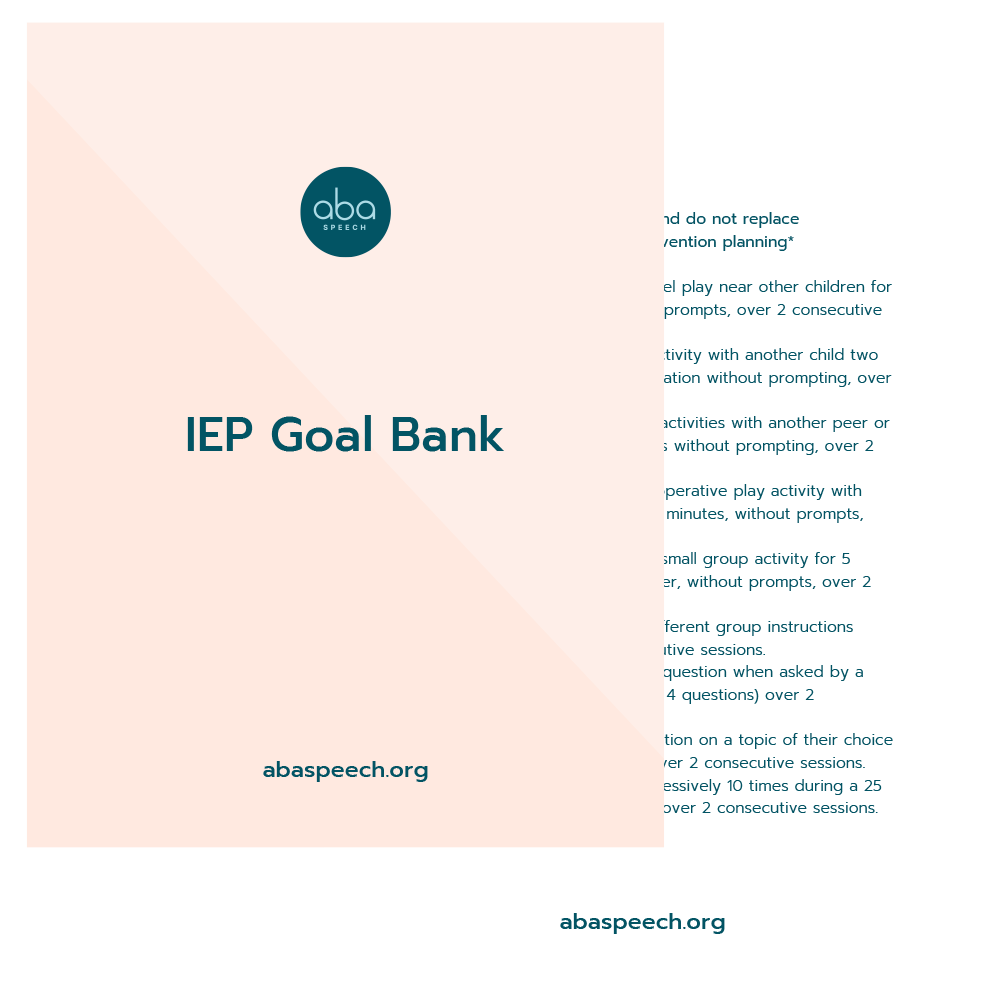When a child is diagnosed with Autism, parents are often told he/she would benefit from Applied Behavior Analysis (ABA), in combination with other therapy services. Early intervention is key. The earlier a child receives services, the more time there is available to facilitate positive learning outcomes. How do you find the best ABA provider for your child? Knowing where to start in the search for a provider can often feel very overwhelming to parents and families. ABA Speech wants to help you to navigate this process by suggesting a few advantageous qualities and questions to ask potential providers!

What Does a Good Program Offer?
In researching ABA programs, it’s important to explore what a good program has to offer. The best programs are transparent and often offer parent involvement and the ability to observe. It’s also often advantageous to find a provider who uses a naturalistic approach that’s focused on the child. Each child is unique; therefore, there should not be a “cookie cutter” approach used on every child. The best programs use evidence-based practices with research that supports positive outcomes. From an analytical standpoint, you, as a parent, not only have to trust your instincts but also do your research in finding a provider who is a good fit for your child.
Educational Model vs. Traditional/Clinical Program
Through exploring ABA providers for your child, you will find that some programs use a traditional, clinical approach while others utilize an educational model. Programs who utilize the more traditional, clinical model typically focus on discrete trials. Programs who use an educational model often integrate a variety of activities and other components such as centers, circle time, gross motor activities, sensory exploration, and outdoor play, while also providing the intensive therapy needed to help children recuperate skills. These programs also often offer other therapies (i.e. speech therapy, occupational therapy, etc.) during the school day. Providers work cohesively together, providing more exposure for the child, and often use a shared daily data sheet. In this model, language acquisition often occurs at a more rapid rate. It’s important to know the difference in these models and choose a program you feel will best meet your child’s needs.
Family Support
Children with Autism are not the only ones who need support; their families do as well! It’s beneficial to find a program that not only supports your child’s needs but also the needs of the family. Families especially need help and guidance when a child is newly diagnosed. Although children with Autism spend a great deal of time with therapists and other providers, the families of these children also play a large role. To help with carryover of skills and provide consistency, parents need to learn techniques to use at home. In researching providers, it’s helpful to ask if they provide any caregiver training. Finding an ABA program who offers this type of support for the family is highly advantageous, not only for the family but also the child.
Roadmap
As mentioned before, receiving a new diagnosis for a child can be very overwhelming. Parents often receive a plethora of recommendations from a variety of sources. It’s incredibly helpful to provider who will help parents customize a plan of treatment or roadmap to best fit the child’s needs. This allows parents to be an integral part of the course of treatment while also enabling them to still focus on being a parent.
Funding Sources
When a child receives a new diagnosis, parents are often told he/she will need ABA, speech therapy, and occupational therapy. The costs of these services can be very overwhelming! Some states offer scholarships or other opportunities for support. Finding a provider who has knowledge of what’s available regarding financial support and will help you to navigate this can be incredibly helpful.
We hope the information we have shared with you will be helpful with your search of an ABA provider to best fit your child’s need!

0 Comments